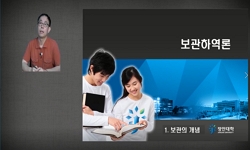본 고는 五行 중 辰戌丑未 土의 墓庫論의 淵源과 의미와 활용의 변천을 고찰한 것이다. 墓庫의 구분에 대해 곽박의 원문과 장옹의 『玉照定真經』 주석 및 서자평의 『玉照神應真經』 주석...
http://chineseinput.net/에서 pinyin(병음)방식으로 중국어를 변환할 수 있습니다.
변환된 중국어를 복사하여 사용하시면 됩니다.
- 中文 을 입력하시려면 zhongwen을 입력하시고 space를누르시면됩니다.
- 北京 을 입력하시려면 beijing을 입력하시고 space를 누르시면 됩니다.
https://www.riss.kr/link?id=A109464009
- 저자
- 발행기관
- 학술지명
- 권호사항
-
발행연도
2024
-
작성언어
-
-
주제어
庫 ; 墓 ; 開庫 ; 入庫 ; 入墓 ; Storage ; tomb ; Opening Storage ; Entering the Storage ; Entering the tomb
-
KDC
912
-
등재정보
KCI등재
-
자료형태
학술저널
-
수록면
87-106(20쪽)
- 제공처
-
0
상세조회 -
0
다운로드
부가정보
국문 초록 (Abstract)
入庫란 五行이라는 사물이 庫에 들어간다는 의미이다. 『三命通會』에서 入庫된 十星 중에서 司令한 것이 천간에 투간되어 吉하게 작용하면 복을 누릴 수 있지만, 입고된 것이 透干하지 않았으면, 원국의 强弱을 잘 판단해야 한다고 했다. 入墓는 무덤에 들어간다는 의미이고, 入庫에 비해 부정적으로 사용되고 있다. 『李虛中命書』에서는 오행이 入墓 運에 들면 스스로 겸손하고 사양하는 태도로 부귀를 보존하라고 했다.
본 고는 五行 중 辰戌丑未 土의 墓庫論의 淵源과 의미와 활용의 변천을 고찰한 것이다. 墓庫의 구분에 대해 곽박의 원문과 장옹의 『玉照定真經』 주석 및 서자평의 『玉照神應真經』 주석에서 모두 旺氣는 庫로, 弱한 氣는 墓로 보았다. 반면 『李虛中命書』 등 대부분의 原典 저자들은 墓와 庫를 혼용하고 있다. 그러나 陣素庵은 『命理約言』에서 支藏干의 中氣만 墓라고 하고, 庫와 墓를 혼용하고 있다. 진소암은 『命理約言』에서 刑하면 動하고, 沖하면 發한다는 즉 發動이 되어야 비로소 개고가 이루어진다고 보고 개고의 방법으로 刑沖破害를 제시했다. 『子平眞詮』에서 심효첨은 開庫는 刑沖으로 가능하지만 木火金水의 開庫는 俗書의 오류이고 단지 土의 충만 가능하다고 주장했다. 반면 『滴天髓闡微』에서 任鐵樵는 命에 따라 신중하게 開庫를 판단해야 한다고 했다.
入庫란 五行이라는 사물이 庫에 들어간다는 의미이다. 『三命通會』에서 入庫된 十星 중에서 司令한 것이 천간에 투간되어 吉하게 작용하면 복을 누릴 수 있지만, 입고된 것이 透干하지 않았으면, 원국의 强弱을 잘 판단해야 한다고 했다. 入墓는 무덤에 들어간다는 의미이고, 入庫에 비해 부정적으로 사용되고 있다. 『李虛中命書』에서는 오행이 入墓 運에 들면 스스로 겸손하고 사양하는 태도로 부귀를 보존하라고 했다.
다국어 초록 (Multilingual Abstract)
This paper examines the origin, meaning, and application of tomb(墓) and storage(庫) theory of Earth(土) in the JinSulChookMi(辰戌丑未) out of the Five Elements(五行). Concerning the distinction of tomb and storage, in Gwak Park(郭璞)'s ori...
This paper examines the origin, meaning, and application of tomb(墓) and storage(庫) theory of Earth(土) in the JinSulChookMi(辰戌丑未) out of the Five Elements(五行). Concerning the distinction of tomb and storage, in Gwak Park(郭璞)'s original text, Jangong(張顒)'s 『Okjojeongjingyung(玉照定眞經)』, and Seo Ja-pyeong(徐子平)'s 『Okjoxinnengjingyung(玉照神應眞經)』, had claimed the Powerful Qi(旺氣) as storage, and the Weak Qi as tomb. On the contrary to this claim, the authors of other books such as 『Lihezhongmingshu(李虛中命書)』 and etc used both terms tomb and storage interchangeably. However, the author of 『Myeongriyakeon(命理約言)』, Jin So-Am(陣素庵) only referred to Joonggi(中氣) of the Jijangan(支藏干) as tomb and used the terms storage and tomb interchangeably. Jin So-Am, the author of book 『Myeongriyakeon(命理約言)』, distinguished the terms of opening storage with this case; Penalty(刑) meets Moving(動) and collision(沖) meets launching(發), and Activating(發動) becomes opening Storage. He suggested Hyung·Choong·Pa·Hae(刑·沖·破·害) as a way of opening storage. The author of 『Japyeongjinjeon(子平眞詮)』, Shim Hyo-cheom(沈孝瞻) argued that Hyung, Choong(刑沖) is acceptable as the way of opening storage, but that the opening of Wood·Fire·Metal·Water(木火金水) is an error of book writers, and only the Hyung(沖) of Earth(土) is possible. On the other hand, the author of 『Jeokcheonsucheonmi(滴天髓闡微)』, Lim Cheol-cho(任鐵樵), said that one should judge opening storage carefully according to destiny(命). The character of entering the storage(入庫) is still interpreted as the five elements entering the storehouse. In the 『Sanmingtonghui(三命通會)』, If the command of the ten stars that have been received is transmitted to the heavens and works for good, you can enjoy blessings, but if they are not transmitted, You have to be a good judge of the strength and weakness of your destiny. Entering the tomb(入墓) means to enter a tomb, and is used negatively compared to entering the storage(入庫). In the 『Lihezhongmingshu(李虛中命書)』 When the Five Elements are in the fortune of entering the tomb(入墓), one should be humble and reserved in order to preserve their wealth.
목차 (Table of Contents)
- Ⅰ. 서론
- Ⅱ. 辰戌丑未墓庫의 의미
- Ⅲ. 辰戌丑未墓庫의 활용
- Ⅳ. 결론
- Ⅰ. 서론
- Ⅱ. 辰戌丑未墓庫의 의미
- Ⅲ. 辰戌丑未墓庫의 활용
- Ⅳ. 결론
동일학술지(권/호) 다른 논문
-
- 중국인문학회
- 이흥주
- 2024
- KCI등재
-
근대 중국의 문예담론을 총괄할 대표 ‘소설총론’ 으로서의 정립 가능성 검토 - 管達如의 「說小說」·呂思勉의 「小說叢話」를 대상으로
- 중국인문학회
- 정해리(Hae Lee Jeong)
- 2024
- KCI등재
-
- 중국인문학회
- 편집부
- 2024
- KCI등재
-
李白의 시에 나타난 不遇 주제 - 초월적 자아 추구와 자연 은거
- 중국인문학회
- 장수연(Su-yeon Jang)
- 2024
- KCI등재





 스콜라
스콜라






